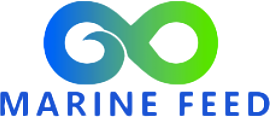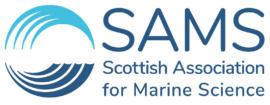Sustainable Aquaculture
We are transforming the aquaculture sector by reducing its carbon footprint, transitioning to circular economy, and ensuring food security and safety.

Supporting sustainable seafood consumption
Aquaculture, the farming of aquatic animals and plants such as fish, shellfish, seaweed and algae in water environments, could meet up to two-thirds of global seafood consumption by 2030. However, aquaculture practices are often inefficient and can have a significant impact on the environment and aquatic biodiversity. By supporting entrepreneurs and industry stakeholders and educating consumers, we can better scale sustainable aquaculture practices to ensure the future of seafood is secured.

One out of two Europeans does not trust the food system

Top 4 solutions to improve consumer trust in food

The Big Takeaway Series 3
It’s that time again! Matt is back with another Big Takeaway Episode, picking out some of the standout moments in Series 3 from food loss and regenerative agriculture, to protein diversification and tackling inequality in the food system.
Latest related news
Can sustainable aquaculture help to achieve the UN SDGs?
As global demand for protein increases, aquaculture is playing a growing role in feeding the population, but is aquaculture sustainable and can it be used to address the SDGs?
Looking for more content related to Sustainable Aquaculture?
Related startups in our network

Spotlight: TRACOD on fresh fish transparency
Dov Dori, Co-ordinator of the TRACOD Project, highlights how they are improving trust and transparency in the food system with their technology that identifies species of fish.

Top 5 European food trends in 2022

Emerging trends in the food system: 2022 and beyond
In this special episode, Matt is joined by Ed Bergen, a Senior Analyst at FutureBridge, to discuss predictions for the food system in 2022 and the emerging trends which we can expect to see in the sector.

All you can learn #2 - Sustainable Seafood: Barriers and Opportunities in the Fishing Industry
Hear what aquaculture experts have to say about sustainable seafood and the barriers and opportunities in the fishing industry!

Using inclusive systems innovation to build a future-fit food system

UNFSS ‘Good Food For All’ Competition Winners: Part 2
Matt is joined by EIT Food’s Strategic Relationship Manager, Barbaros Corekoglu, to celebrate the small business entrepreneurs who are transforming their food systems for a better tomorrow.

Spotlight: Pure Algae on sustainable seaweed cultivation and carbon capture
Esben Christiansen, CEO and Founder of Pure Algae, highlights how they using their technology to add value to land-based aquaculture systems

One out of two Europeans does not trust the food system

Top 4 solutions to improve consumer trust in food

The Big Takeaway Series 3
It’s that time again! Matt is back with another Big Takeaway Episode, picking out some of the standout moments in Series 3 from food loss and regenerative agriculture, to protein diversification and tackling inequality in the food system.

Spotlight: TRACOD on fresh fish transparency
Dov Dori, Co-ordinator of the TRACOD Project, highlights how they are improving trust and transparency in the food system with their technology that identifies species of fish.

Top 5 European food trends in 2022

Emerging trends in the food system: 2022 and beyond
In this special episode, Matt is joined by Ed Bergen, a Senior Analyst at FutureBridge, to discuss predictions for the food system in 2022 and the emerging trends which we can expect to see in the sector.


Using inclusive systems innovation to build a future-fit food system

UNFSS ‘Good Food For All’ Competition Winners: Part 2
Matt is joined by EIT Food’s Strategic Relationship Manager, Barbaros Corekoglu, to celebrate the small business entrepreneurs who are transforming their food systems for a better tomorrow.

Spotlight: Pure Algae on sustainable seaweed cultivation and carbon capture
Esben Christiansen, CEO and Founder of Pure Algae, highlights how they using their technology to add value to land-based aquaculture systems














